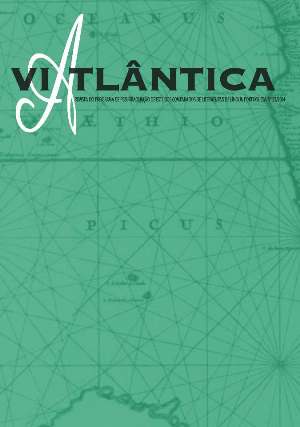Literatures in Portuguese: Atlantic Crossroads
DOI:
https://doi.org/10.11606/va.v0i25.69870Keywords:
Portugal, African colonies, Empire, Atlantic vocation, Colonialism, Postcolonialism, “Contact Zones”, Literatures in portuguese, Post-colonial identityAbstract
I propose to reflect the different features characterizing the relationship among the spaces of portuguese colonialism with a special emphasis on Africa. In doing so, I shall be relying on the concept of contact zones, a working term coined by Mary Louise Pratt in her studies based on cultural encounters to describe their interrelational productive efficiency. Owing to the fact that the relationship between africans and the portuguese, which has been understood as Portugal's "Atlantic Vocation", portuguese literature seems to reflect upon such a relationship by locating it between a sense of belonging that demands hero-worshipping the past and a desire to gain an atlantic identity after the last african colonies had been abandoned. In order to broach this subject, I shall be calling upon theoretical proposals about memory and the difficulty of talking about or narrating trauma, based on Walter Benjamin's "The storyteller: reflections on the works of Nicolai Leskov" (1936), here I shall be relying upon notions put forward by Walter Benjamin's "The storyteller: reflections on the works of Nicolai Leskov" (1936), by Pierre Nora's realms of memory: rethinking the french past (1997, 2008), by Márcio Seligmann-Silva (2005, 2008), By Amin Maalouf in Les Identités Meurtrières [translated into english as in The name of identity: violence and the need to belong, 2001]; Homi Bhabha's the location of culture (1994), and Mary Louise Pratt's interrelational term (Imperial eyes: travel writting and transculturation, 1992). Which offers an efficient interpretational tool for studies about cultural encounters.
Downloads
Downloads
Published
Issue
Section
License
Copyright (c) 2014 Inocência Mata

This work is licensed under a Creative Commons Attribution 4.0 International License.
Authors who publish with this journal agree to the following terms:
- Authors retain copyright and grant the journal right of first publication with the work simultaneously licensed under a Creative Commons Attribution License that allows others to share the work with an acknowledgement of the work's authorship and initial publication in this journal.
- Authors are able to enter into separate, additional contractual arrangements for the non-exclusive distribution of the journal's published version of the work (e.g., post it to an institutional repository or publish it in a book), with an acknowledgement of its initial publication in this journal.
- Authors are permitted and encouraged to post their work online (e.g., in institutional repositories or on their website) prior to and during the submission process, as it can lead to productive exchanges, as well as earlier and greater citation of published work (See The Effect of Open Access).



















